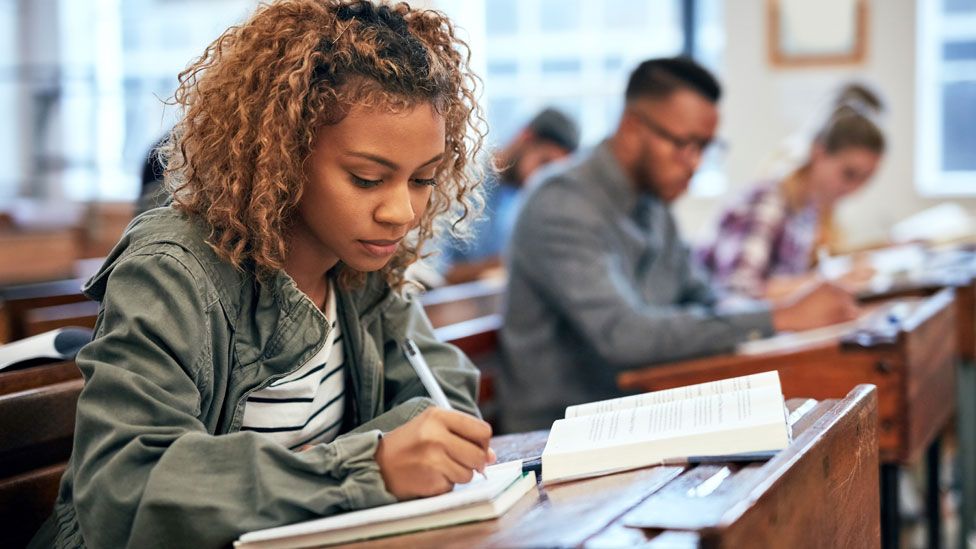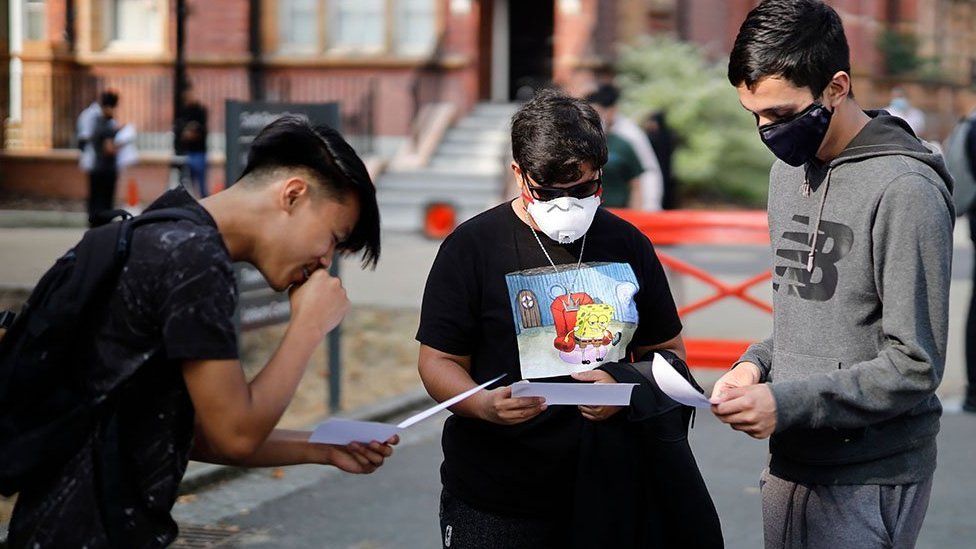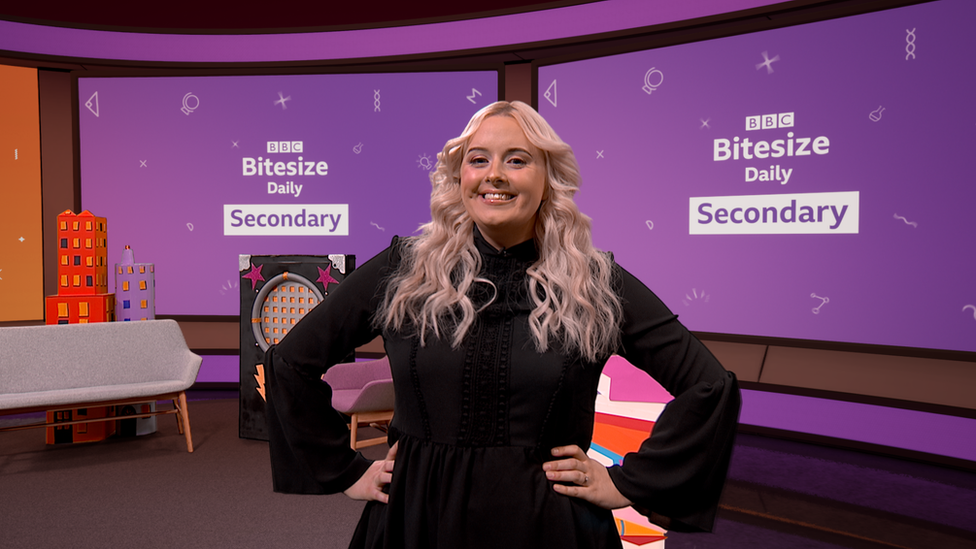INFORMATION LEAFLET FROM LIVERPOOL CITY COUNCIL
TRANSFER FROM PRIMARY TO SECONDARY SCHOOL
Information for parents September 2021
INTRODUCTION
This information booklet is aimed at the parents of children currently in Year 5
who will become eligible from 12th September 2020 to make their secondary
applications for Year 7 places starting in September 2021.
This information booklet outlines what will happen and gives you guidance
about how you can get more information about schools and advice about how
to apply for school places.
From 12th September you are then able to make your school preferences
application at liverpool.gov.uk/admissions where there is further information
and guidance posted online.
CHOOSING A SCHOOL
The Liverpool city council website includes the composite prospectus
admissions information spread across its webpages at
liverpool.gov.uk/admissions
This includes important information about how to apply to schools; what
criteria are used to allocate places if a school gets more applications than
it has places available and how places were allocated in the previous year.
Before expressing a preference for a school it is important that you understand
the school’s admission policy and know whether or not the school was
oversubscribed in the previous year. By using this information you can assess
your child’s chances of gaining a place in the school.
In addition to the composite prospectus admissions information online at
liverpool.gov.uk/admissions there are several other sources of information
that you can use to find out more about schools, these include the following:
• School Open Evenings. (Please see Open Evening section within this
booklet for further details)
• School websites
• School Admissions Team (Contact details can be found in the Contact
Points section in this information booklet).
• The Department for Education website at gov.uk/contact-dfe
• If you are thinking of applying to schools in other local authorities then
you should contact the relevant local authorities for information on their
composite admissions prospectus. (Contact details can be found in the
Contact Points section in this information booklet).
APPLYING FOR SCHOOLS
In the online application there is a preference section which asks you to
express preferences for up to five schools. As a Liverpool resident, to apply
for schools in Liverpool or other Local Authorities you must complete this
application.
There are different types of schools in Liverpool and they have different
admission arrangements. Community schools follow the admission policy
determined by the City Council. Academies, Foundation/ Trust and Voluntary
Aided schools follow the admission policy determined by the governing body.
Some schools require parents to complete a supplementary school application
form (these are available to download at liverpool.gov.uk/admissions) as well
as completing the local authority’s online preference form/paper application.
Where this is the case you must complete both forms. The supplementary
school application form is used by the governors when they are deciding
which children to admit. The local authority’s preference form is used as part
of the coordinated admissions procedure.
LIVERPOOL RESIDENTS
Liverpool residents can apply for Liverpool schools and schools in other
local authorities on Liverpool’s online application/paper application form. If
you are thinking of applying to schools in other areas you should contact
the local authority serving that area to find out how to access information for
the schools in their area and what the admission arrangements are for these
schools. Contact details for neighbouring local authorities are available at
liverpool.gov.uk/admissions.
NON LIVERPOOL RESIDENTS
If you live outside Liverpool and your child attends a Liverpool primary school
your home local authority (this is the local authority which serves the area
where you live) will provide you with information detailing how to apply.
HOW PLACES ARE ALLOCATED
If a school gets fewer applicants than it has places all applicants are admitted.
If there are more applicants than places the school’s admission policy is used
to decide which children are admitted. The local authority decides which
children are admitted to community schools. The governors of Academies,
Foundation/Trust and Voluntary Aided Schools decide which children are
admitted to these schools.
For admission to secondary school in September 2020, 71% of applicants
were offered their first preference school and 93% of applicants were offered
one of the five schools they placed as a preference.
To ensure that parents are allocated a place for their child at only one school
Liverpool coordinates the admission procedure with schools and neighbouring
local authorities. This means that information about applications is shared
between schools and other local authorities. The local authority only provides
information which is needed to operate the admission arrangements.
Academies, Foundation/Trust and Voluntary Aided schools use the school’s
admission policy to determine which children will be offered places. If your
child meets the admission criteria for a place at more than one of your
preferred schools, the local authority uses your school preference order to
decide which school your child is offered. In these circumstances your child
will be offered a place at the highest preference school which offered a place.
Schools are not informed of your preference order.
If the local authority cannot offer a place at any of the schools you have stated
as a preference a place will be allocated at the nearest school with places
available at the time of allocation.
All applicants who apply online will receive their offer by email on 1st March
2021. Postal applications will be written to by 1st class post on 1st March
2021.
THE APPEALS PROCEDURE
If you are not satisfied with the school your child has been allocated you can
appeal against the decision to an Independent Appeals Panel. Details of the
appeals procedures will be sent with the offer letters.
CHILDREN WITH SPECIAL EDUCATIONAL NEEDS
SEN Support
If your child has special educational needs or a disability but does not have
a Statement of Special Educational Needs or an Education Health and Care
Plan, you should complete the preference form issued by your home local
authority. The usual admission policy for the school will apply. If you are not
allocated a place for your child in your preferred school you can appeal to an
independent appeal panel.
CHILDREN WITH A STATEMENT OR
EDUCATION HEALTH AND CARE PLAN
If your child has a Statement of Special Educational Needs or an Education
Health and Care Plan and is in a mainstream school, you should complete the
preference form issued by your home local authority.
You will discuss the secondary school your child will transfer to at your child’s
Annual Review in the autumn term. A decision about which secondary school
your child will attend will be made following the Annual Review. If you disagree
with the secondary school named in your child’s statement you can appeal
to the Special Educational Needs and Disability Tribunal. Contact the Special
Education Needs and Disability Team about this.
SUPPLEMENTARY SCHOOL APPLICATION FORMS
The schools which require you to complete a school application form will be
clearly shown at liverpool.gov.uk/admissions . It is important that if required
you complete a supplementary school application form.
These forms can be downloaded at liverpool.gov.uk/admissions or obtained
from the school. They must be returned to the school and not sent to the local
authority.
TIMETABLE FOR ADMISSIONS PROCEDURE
12th September 2020 You will receive the Admission to Secondary
School 2021 letter from your child’s Primary
School.
31st October 2020 Closing date for applications.
November 2020
– February 2021
The local authority coordinates admission
arrangements with schools and neighbouring
local authorities to allocate places.
1st March 2021 Offer emails and letters sent to parents.
April to June 2021 Admission appeals.
7th July 2021 Liverpool Secondary Schools’ Induction Day.
ABILITY TESTS OR APTITUDE ASSESSMENTS
Some schools which use ability tests or aptitude assessments to allocate
places require applicants to register for the tests or assessments before this
closing date. This is because they intend to inform parents about the outcome
of the tests or assessments before parents express a preference.
All dates, times and arrangements for the annual admissions timeline,
schools assessments and tests along with open evenings are subject to
change dependent on social distancing regulations due to Covid-19.
Please contact schools directly closer to the time of the relevant dates for
assessments, tests and open evenings using the contact details included
within this information booklet. The local authority will make every attempt
to keep information as up to date as possible via the website at:
liverpool.gov.uk/admissions
CLOSING DATES
The following schools have earlier registration dates for applicants taking
aptitude assessments, ability tests or banding tests:
School Closing Date
for registering
Date of
Assessment/Exam
Telephone
Archbishop Blanch 11/9/20 wc 28/9/20 233 7373
King David High School 9/9/20 wc 23/9/20 235 1420
Liverpool College 25/9/20 10/10/20 724 4000
ext 3228
North Liverpool Academy 31/10/20 7/11/20, 12/11/20,
3/12/20, 5/12/20
260 4044
St Edward’s College 1/9/20 wc 14/9/20 281 1999
St Francis Xavier’s
Catholic Academy
28/9/20 3/10/20 288 1000
The Belvedere Academy 18/9/20 (noon) 3/10/20 727 1284
The Blue Coat 4/9/20 26/9/20 733 1407
BANDING
If Liverpool College, The North Liverpool Academy and The Belvedere Academy
are oversubscribed a banding system is used to decide which children are offered
places. The results of the assessment will place applicants in one of five ability
bands.
If these bands are oversubscribed, random allocation is used to allocate
places. The aim of using banding is to help the academy to have a spread
of children with different abilities and because of this applicants will not be
informed about the results of the assessment.
CONTACT POINTS
Admissions Team (Call Centre) Tel: 233 3006
Parent Partnership Service Tel: 233 2848
Special Educational Needs and Disability Team Tel: 233 5957
Church of England Diocese Tel: 705 2190
Merseyside Catholic Archdiocese Tel: 522 1071
FE website education.gov.uk/schools
LIVERPOOL SECONDARY SCHOOL OPEN DAY/EVENING
FOR SEPTEMBER 2020 INTAKE
SCHOOL NAME DATE ADDRESS AND CONTACTS
The Academy of St.
Francis of Assisi
Gardners Drive,
Liverpool L6 7UR
Wednesday 23
September 2020
5.00pm – 8.00pm
Headteacher:
Mr K Maddocks
T: 0151 260 7600
E: info@asfaonline
The Academy of
St Nicholas
51 Horrocks Avenue
L19 9NY
Saturday 19 September
2020 4.00pm – 7.00pm
Headteacher:
Jeniffer Sing
T: 0151 230 2570
E: info@astn.uk
Alsop High School
Queens Drive
Liverpool L4 6SH
Wednesday 23
September 2020
4.30pm – 7.00pm
Headteacher:
Mr Chris Wilson
T: 0151 235 1200
E: office@alsophigh.org.uk
Archbishop Beck
Catholic College
55 Long Lane,
Liverpool L9 7BF
Thursday 24 September
2020 4.30pm – 7.30pm
Headteacher:
Mr Paul Dickinson
T: 0151 525 6326
E: info@beck.uk.com
Archbishop Blanch
CE High School
80 Earle Road
Liverpool L7 6HQ
Thursday 8 October
2020 4.00pm – 7.00pm
Headteacher:
Claire Madeloso
T: 0151 233 7373
E: admin@blanch.org.uk
Bellerive FCJ
Catholic College
1, Aigburth Drive,
Liverpool L17 3AA
Tuesday 1 October
2020 6.00pm – 8.30pm
Headteacher:
Mrs Niamh Howlett
T: 0151 727 2064
E: contactus@bellerivefcj.org
The Belvedere
Academy
17 Belvidere Road,
Princes Park,
Liverpool L8 3TF
Thursday 25 June
(VIRTUAL Open
Evening)
Tuesday 15 September
2020 open morning and
evening times tbc
Principal: Mrs Julie Taylor
T: 0151 727 1284
E: info@belvedereacademy.net
The Blue Coat School
Church Road,
Liverpool L15 9EE
w/c 12 October
(VIRTUAL Open
Evening)
Headteacher:
Scilla Yates
T: 0151 733 1407
E: office@bluecoatschool.org.uk
Broadgreen
International School
Queens Drive,
Liverpool L13 5UQ
Tuesday 15 September
2020 4.00pm – 6.30pm
(Showcase
Open Evening)
Headteacher:
Ms Pat Towey
T: 0151 228 6800
E: enquiries@bgis.co.uk
Broughton Hall
Catholic High School
Yew Tree Lane,
Liverpool L12 9HJ
Thursday 24 September
2020 4.00pm – 7.00pm
Headteacher:
Mr G Preston
T: 0151 541 9440
E: admin@broughtonhall.com
Calderstones School
Harthill Road,
Liverpool L18 3HS
Thursday 24 September
2020 4.00pm – 7.00pm
Headteacher:
Mr Lee Ratcliffe
T: 0151 724 2087
E: admin@calderstones.co.uk
Cardinal Heenan
Catholic High School
– Sports College
Honeysgreen Lane,
Liverpool L12 9HZ
Monday 14 September
2020 6.00pm – 8.00pm
Headteacher:
Ms K Smyth
T: 0151 235 1430
E: admin@cardinal-heenan.org.uk
Childwall Sports and
Science Academy
Queens Drive,
Liverpool L15 6XZ
Thursday 24 September
2020 4.00pm – 7.30pm
Headteacher:
Ms J E Vincent
T: 0151 722 1561
E: admin@childwallssa.org
De La Salle Academy
Carr Lane East,
Liverpool L11 4SG
Thursday 24 September
2020
5.00pm – 7.00pm
Principal:
Mr D Hayes
T: 0151 546 3134
E: hello@de-la-salle.co.uk
Fazakerley High
School
Sherwoods Lane,
Liverpool L10 1LB
Wednesday 23 September
2020 4.30pm – 7.30pm
Headteacher:
Miss H Duggan
T: 0151 524 4530
E: admin@fazakerleyhigh.org
Gateacre School
Hedgefield Road,
Liverpool L25 2RW
Wednesday 23 September
2020 5.00pm – 8.00pm
Headteacher:
Mr G Jones
T: 0151 363 1111
E: admin@gateacre.org
email: admissions@liverpool.gov.uk
Holly Lodge Girls’
College
140 Mill Lane,
Liverpool L12 7LE
Thursday 1 October 2020
4.00pm – 6.00pm
Headteacher:
Mr A Keen
T: 0151 228 3772
E: hollylodge@hollylodge.
liverpool.sch.uk
King David High
School
Childwall Road,
Liverpool L15 6WA
Tuesday 7 July 2020
5.00pm – 7.00pm
(VIRTUAL Open Evening)
Headteacher:
Mr M Sutton
T: 0151 235 1420
E: office@kingdavidliverpool.co.uk
Kings Leadership
Academy Liverpool
Dingle Vale,
Liverpool L8 9SJ
No open event planned Headteacher:
Mr M O’Hagan
T: 0151 727 1387
E: admin@kingsliverpool.com
Liverpool College
Queens Drive,
Liverpool L18 8BG
Saturday 12 September
2020
Headteacher:
Mr H Broekman
T: 0151 724 4000
E: admin@liverpoolcollege.org.uk
North Liverpool
Academy
Heyworth Street,
Liverpool L5 0SQ
Thursday 17 September
& Thursday 8 October
4.30pm – 6.30pm
Headteacher:
Ms E Vernon
T: 0151 260 4044
E: a.collins@
northliverpoolacademy.co.uk
Notre Dame Catholic
College
180 Great Homer St,
Liverpool L5 5AF
Thursday 1 October 2020
6.00pm-8.00pm
Headteacher:
Mr Peter Duffy
T: 0151 330 5122
E: ao@notredame.liverpool.sch.uk
St Edward’s College
Sandfield Park,
Liverpool L12 1LF
Thursday 25 June 2020
5.00pm – 8.00pm
(VIRTUAL Open Evening)
Headteacher:
Mr Stephen Morris
T: 0151 281 1999
E: principal@st-edwards.co.uk
St Francis Xavier’s
Catholic Academy
Woolton Hill Road,
Liverpool L25 6EG
Tuesday 22 September
2020 6.00pm – 8.30pm
Headteacher:
Mr Paul Halliwell
T: 0151 288 1000
E: admin@sfx1842.org
St Hilda’s Church of
England High School
Croxteth Drive,
Liverpool L17 3AL
Thursday 24 September
2020 3.00pm – 6.30pm
Headteacher:
Mrs J Code
T: 0151 733 2709
E: info@st-hildas.co.uk
St John Bosco Arts
College
Storrington Avenue,
Liverpool L11 9DQ
Thursday 24 September
2020 3.30pm – 7.00pm
Headteacher:
Mr D Gidman
T: 0151 330 5142
E: enquiries@stjohnbosco.org.uk
St Julie’s Catholic
High School
Speke Road
L25 7TN
Thursday 17 September
2020 4.00pm – 6.00pm
Headteacher:
Mr T Alderman
T: 0151 428 6421
E: admissions@stjulies.org.uk
St Margaret’s C of E
Academy
Aigburth Road
L17 6AB
w/c 12 October
(OPEN WEEK)
Principal: Mr S Brierley
T: 0151 427 1825
E: admin@stmargaretsacademy.
com
West Derby School
364 West Derby Road
L13 7HQ
Thursday 17 September
2020 3.00pm – 6.00pm
Headteacher:
Mrs S Graham
T: 0151 235 1300
E: admin@westderbyschool.co.uk
COMMUNITY SCHOOLS
Alsop 235 1200
Calderstones 724 2087
Fazakerley 524 4530
Gateacre 363 1111
Holly Lodge (girls) 228 3772
TRUST SCHOOLS
Broadgreen 228 6800
CATHOLIC SCHOOLS
Archbishop Beck 525 6326
Broughton Hall (girls) 541 9440
Cardinal Heenan (boys) 235 1430
Notre Dame 330 5122
St John Bosco (girls) 235 1620
St Julie’s (girls) 428 6421
CHURCH OF ENGLAND
Archbishop Blanch
(girls) 233 7373
St Hilda’s 733 2709
JEWISH
King David 235 1420
ACADEMIES
Bellerive FCJ
Catholic College (girls) 727 2064
Belvedere (girls) 727 1284
Blue Coat 733 1407
Childwall 722 1561
De La Salle (boys) 546 3134
Academy of
St Nicholas 230 2570
Liverpool College 724 4000
North Liverpool
Academy 260 4044
St Edward’s College 281 1999
St Francis of Assisi 260 7600
St Francis Xavier’s
Catholic Academy
(boys) 288 1000
St Margaret’s CofE
Academy (boys) 427 1825
West Derby (boys) 235 1300
King’s Leadership
Academy Liverpool 727 1387
SECONDARY SCHOOL ADMISSIONS COMMON MYTHS
I apply at the end
of Year 6 for a
secondary school
place.
NOT
TRUE
You apply at the beginning of Year 6. The
Local Authority common application must
be submitted by 31 October each year
either online or by paper application form
upon request.
My child will
automatically go to
the local secondary
school.
NOT
TRUE
There is no automatic transfer from primary
to secondary – you MUST complete a local
authority common application either online
or by paper application form upon request.
Because I’ve let the
school know I want
my child to go there,
I don’t have to fill in
any forms.
NOT
TRUE
You still need to complete your home
local authority’s common application.
Some schools do have a supplementary
information form – if they do, you will need
to complete this AND your home authority’s
common application.
I have a child in
the school I want,
so my child will
automatically get a
place.
NOT
TRUE
Some schools do give priority to those
with older brothers/sisters in the school,
but there is NO GUARANTEE. You need to
check the school’s criteria and still must
complete the application procedure in full.
Parents have to be
given a place at the
school nearest to
home.
NOT
TRUE
If you don’t apply, other people who have
applied will more than likely have taken the
places. Also it depends on the school’s
admissions policy and volume of applicants.
I want to put
down a school in
another authority,
so I complete their
authority form.
NOT
TRUE
NO – you put all your preferences on your
home local authority common application,
no matter which local authority the school(s)
you want to apply for reside in. So for
Liverpool residents wishing to apply to
Knowsley or Sefton schools, you fill in the
Liverpool application form.
If I name the school
three times on the
preference, I will
have more chance of
getting the school.
NOT
TRUE
Don’t repeat the same school, this will not
increase your chances of a place and you
would be disadvantaging your chances of
securing an offer of place at other schools
you may meet the criteria for.
We find out my child
has a place at the
school a couple of
days after applying.
NOT
TRUE
All initial offer e-mails (online applicants
only) and letters are sent out by the local
authority on 1st March for Year 7 places.







Recent Comments